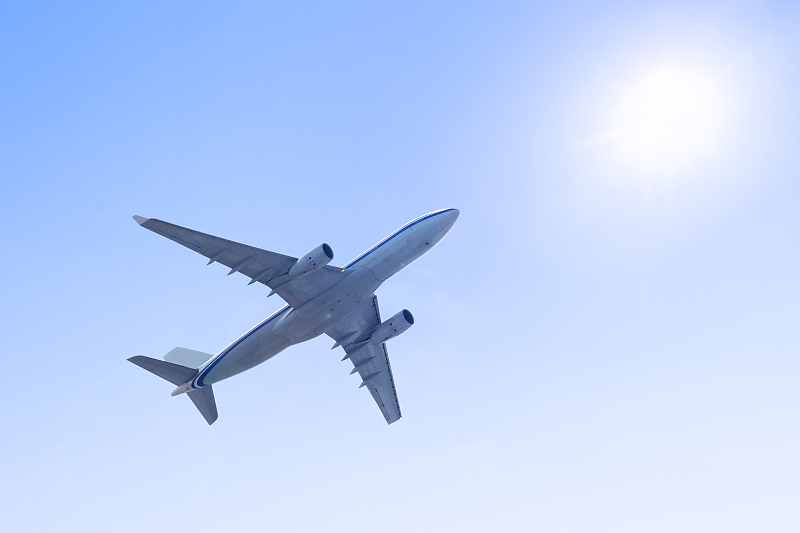New rules aim to increase intl flights

Restrictions on international passenger flights were loosened on Sunday in order to further refine COVID-19 prevention and control measures, while at the same time encourage economic recovery and international travel.
The Civil Aviation Administration of China released a notice on Sunday to optimize its "circuit-breaker mechanism" on international passenger flights.
According to the notice, if five or more confirmed COVID-19 cases are discovered on a single flight and those cases make up at least 4 percent of the entire passengers, the flight service will be suspended for a week. A two-week suspension would be applied if the proportion reaches 8 percent.
These new proportions represent a loosening of the previous restrictions. Previously, if five cases were confirmed, regardless of the total number of passengers, future flights would be canceled or operated at a much lower capacity.
The administration launched the circuit-breaker mechanism back in June, 2020, and has adjusted it several times in the past two years in accordance with the nation's epidemic control policy.
"It's quite a positive signal to the aviation industry. The threshold has shifted from 'five confirmed cases' to '4 percent', which indicates that the airlines have incentives to carry more passengers," said Xu Guangye, a public relations manager at online travel platform Qunar.
"To travelers themselves, the adjustment means there is a lower possibility that their flights may be suspended and that can help reduce the cost of getting back into the country. The adjustment will be beneficial to future international communications," she added.
In the past few months, the nation has optimized its prevention and control policy against the novel coronavirus epidemic. Late in May, the State Council Executive Meeting chaired by Premier Li Keqiang decided to increase domestic and international passenger flights and release some supportive measures to facilitate the travel of foreign companies' staff members.
The nation also shortened the quarantine time for inbound travelers in June. Passengers are required to be placed in centralized quarantine for seven days upon arrival followed by three days of health monitoring at home. Previously, international travelers had to be placed in centralized quarantine for 14 days and monitor their health at home for seven days after.


